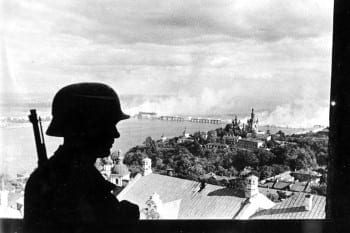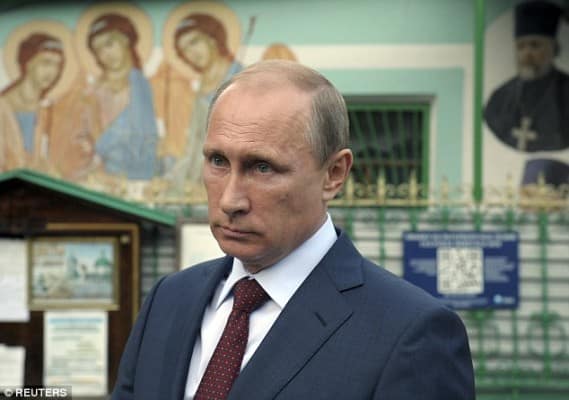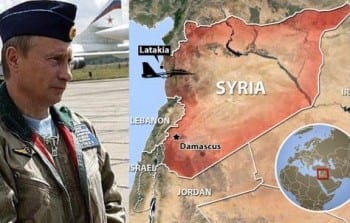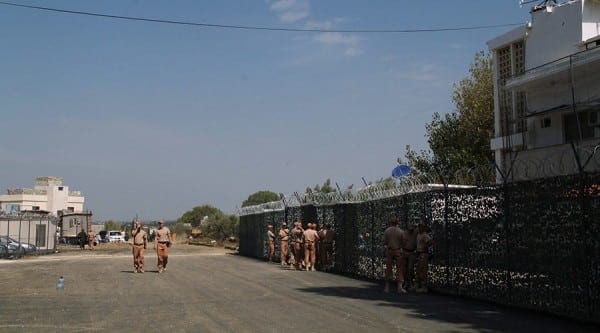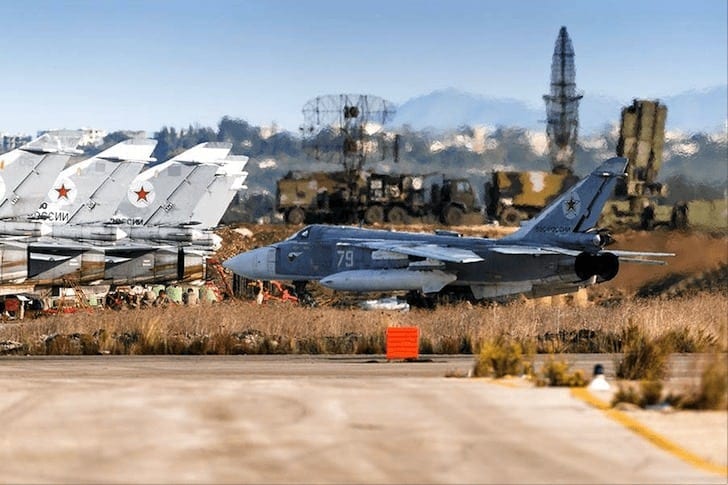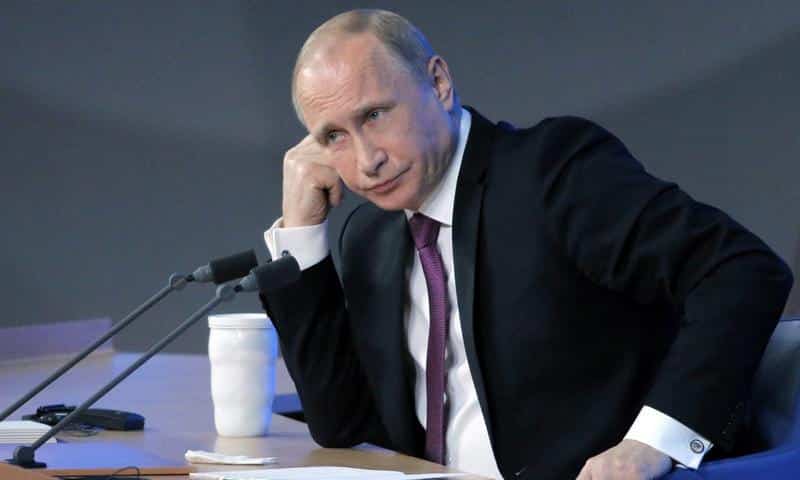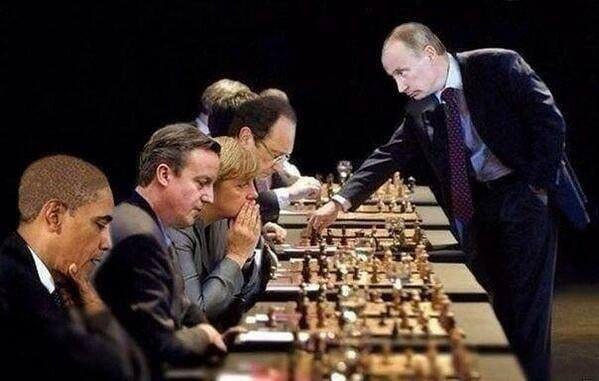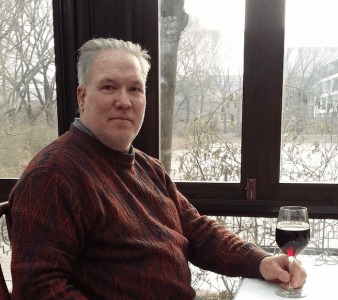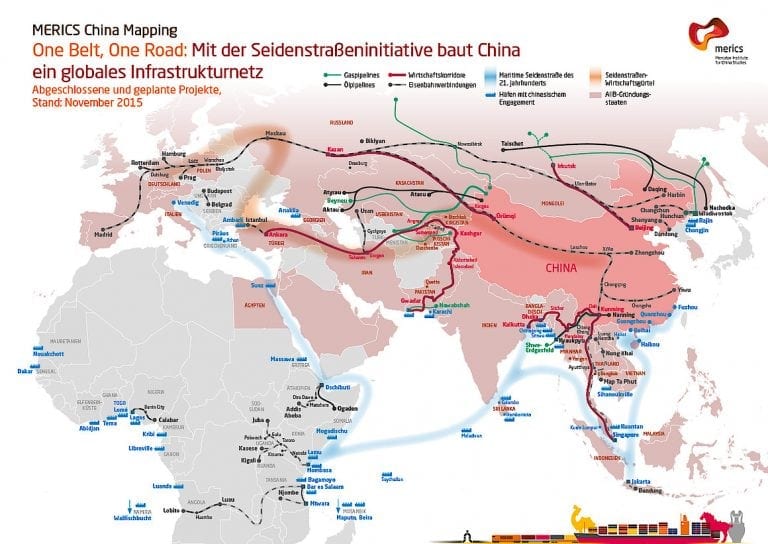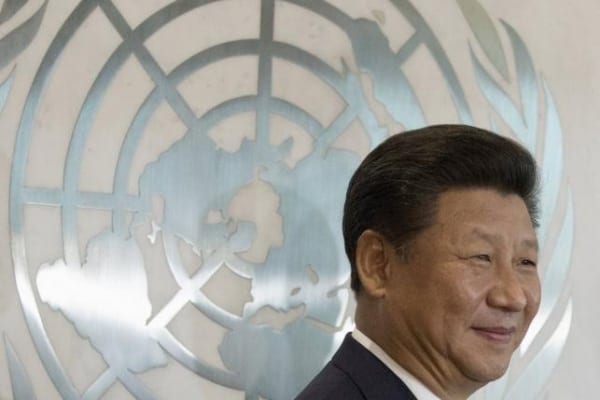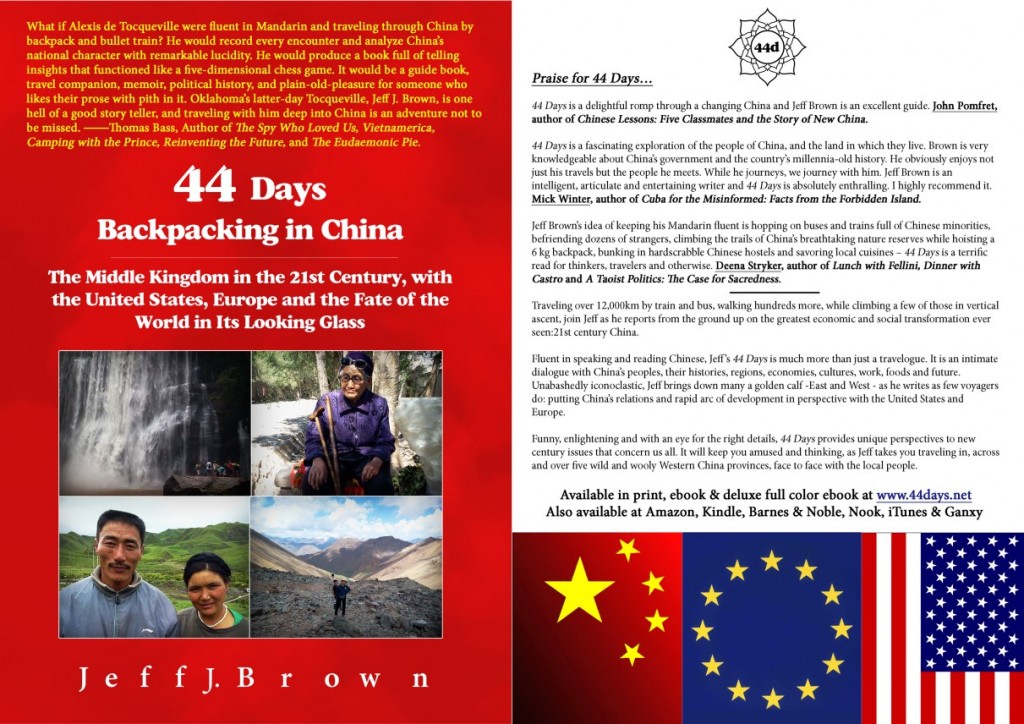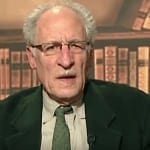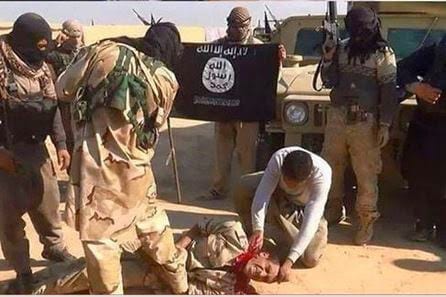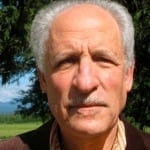
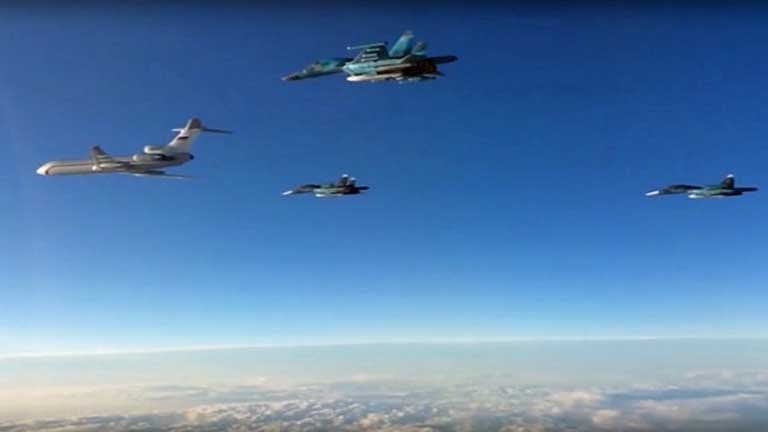
Russian planes, part of Moscow’s small air group in Syria, returning home to bases in the Russian Federation’s Southwest. Mission (truly) accomplished.
THE SAKER CHRONICLES
Deciphering the syntax of disinformation, manufactured wars, and russophobia

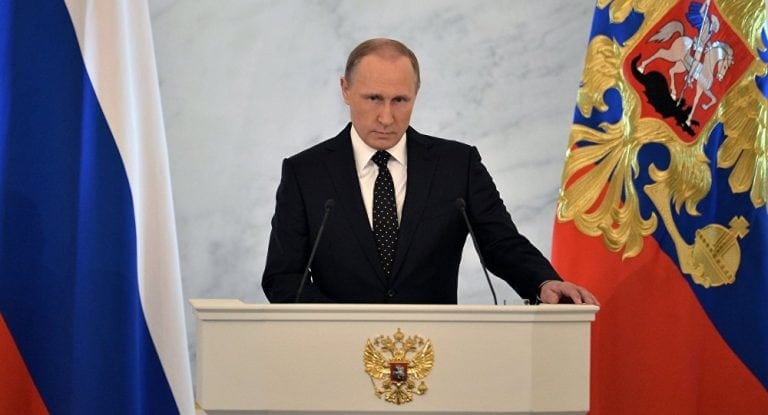 Vladimir Putin has just ordered the withdrawal of the Russian forces in Syria:
Vladimir Putin has just ordered the withdrawal of the Russian forces in Syria:
“I consider the objectives that have been set for the Defense Ministry to be generally accomplished. That is why I order to start withdrawal of the main part of our military group from the territory of the Syrian Arab Republic starting from tomorrow,” Putin said on Monday during a meeting with Shoigu and Russian Foreign Minister Sergey Lavrov. “In a short period of time Russia has created a small but very effective military group in Syria. The effective work of our military forces allowed the peace process to begin,” Putin said, adding that “Russian government troops and [Syria’s] patriotic forces have changed the situation in the fight with international terrorism and have seized the initiative.”
The first question which needs to be asked is whether this is correct: have the Russians achieved their objective or not? To answer this question, we need to look at what the initial Russian objectives were. I did that in my article “Week Thirteen of the Russian Intervention in Syria: debunking the lies” where I wrote: (emphasis added)
The key issue here is what criteria to use to measure “success”. And that, in turns, begs the question of what the Russians had hoped to achieve with their intervention in the first place. It turns out that Putin clearly and officially spelled out what the purpose of the Russian intervention was. On October 11th, he declared the following in an interview with Vladimir Soloviev on the TV channel Russia 1:
Our objective is to stabilize the legitimate authority and create conditions for a political compromise…
That’s it. He did not say that Russia would single-handedly change the course of the war, much less so win the war. And while some saw the Russian intervention as a total “game changer” which would mark the end of Daesh, I never believed that. Here is what I wrote exactly one day before Putin make the statement above:
…
Make no mistake here, the Russian force in Syria is a small one, at least for the time being, and it does not even remotely resemble what the rumors had predicted (…) There is no way that the very limited Russian intervention can really change the tide of the war, at least not by itself. Yes, I do insist that the Russian intervention is a very limited one. 12 SU-24M, 12 SU-25SM, 6 SU-34 and 4 SU-30SM are not a big force, not even backed by helicopters and cruise missiles. Yes, the Russian force has been very effective to relieve the pressure on the northwestern front and to allow for a Syrian Army counter-offensive, but that will not, by itself, end the war.
I was harshly criticized at that time for “minimizing” the scope and potential of the Russian operation, but I chose to ignore these criticisms since I knew that time would prove me right. Today’s declaration finally puts to rest the “most anticipated showdown” and other “game changer” theories. At least I hope so 🙂
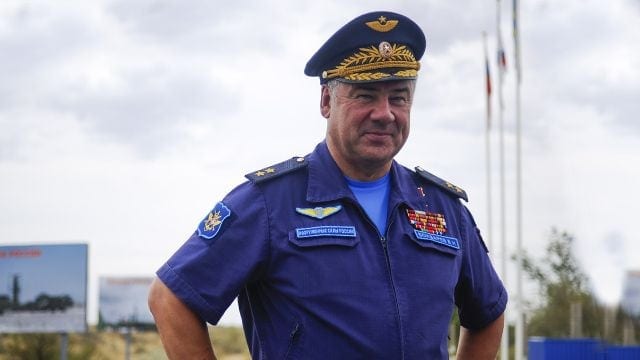
Виктор Бондарев Colonel General Viktor Bondarev, C-in-C of the Russian Aerospace Forces
[dropcap]T[/dropcap]he Russian intervention is a stunning success, that is indisputable. Vladimir Putin and the Russian military ought to be particularly praised for having set goals fully commensurate with their real capabilities. The Russians went in with a small force and they achieved limited goals: the legitimate authority of the Syrian government has been stabilized and the conditions for a political compromise have been created. That is not an opinion, but the facts on the ground. Not even the worst Putin-haters can dispute that. Today’s declaration shows that the Russians are also sticking to their initial exit strategy and are now confident enough to withdraw their forces. That is nothing short of superb (when is the last time the USA did that?).
Still, this leaves many unanswered questions.
A partition of Syria?
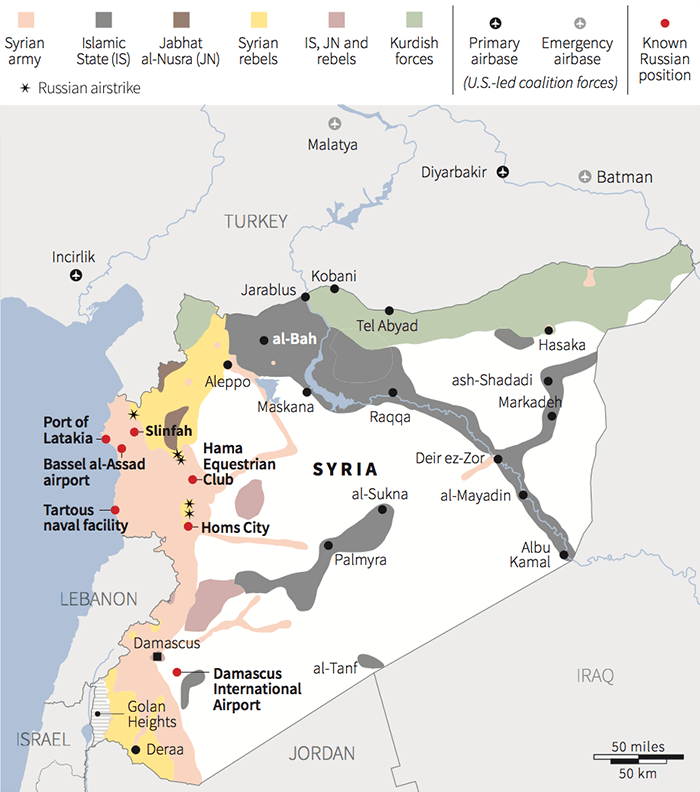
“Partitioning Syria has been, and still is, the longterm Israeli goal. Considering the immense power of the Neocons today (nevermind a Hillary Presidency!) the chances that the US will be trying to partition Syria are immense…”
By withdrawing their forces the Russians could be giving the signal to the USA that they are free to have their “little victorious war” against Daesh. But this could also be a trap. If you consider the complete failure of the US military in Afghanistan and Iraq, you could wonder why they would suddenly do so much better in Syria, especially considering that besides Daesh they might also come face to face with Iranians and Hezbollah fighters. Furthermore, unlike the Russian Aerospace forces, the Americans will be committing ground forces and these have a much bigger tendency to get bogged down in long counter-insurgency operations. If I was a US military advisor I would caution my commanders against a ground operation in Syria even if the Russians are gone.
 SIDEBAR
SIDEBAR
BELOW: Some of Russia’s military assets deployed in Syria. It’s really a tiny force by US standards, but, grounded in great intel, extremely effective.
(CLICK ON IMAGES FOR BEST RESOLUTION.)
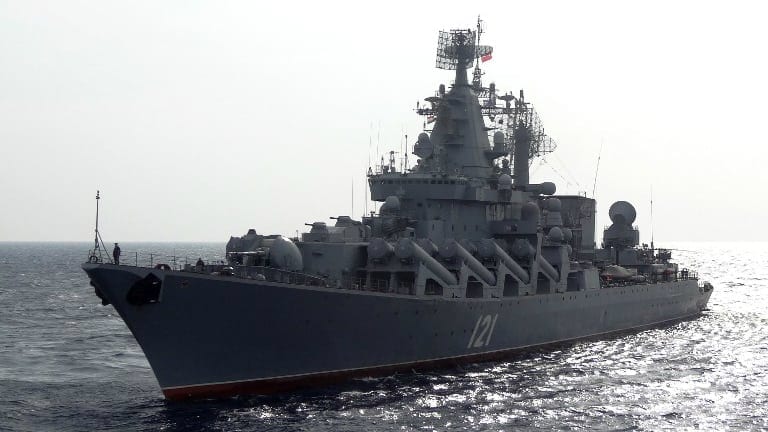
The Moskva missile cruiser, patrolling the Mediterranean within striking distance of Syrian battlefields.
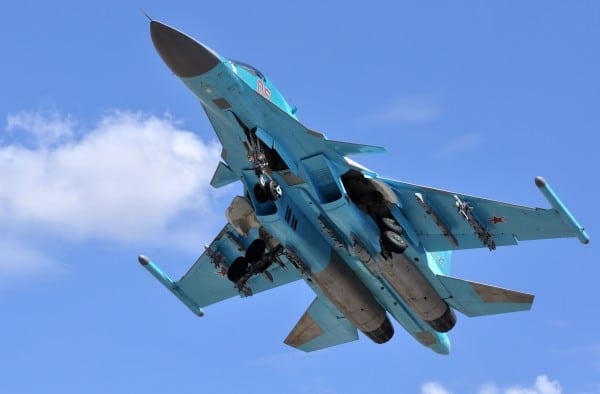
Su-34, advanced tactical fighter/bomber.
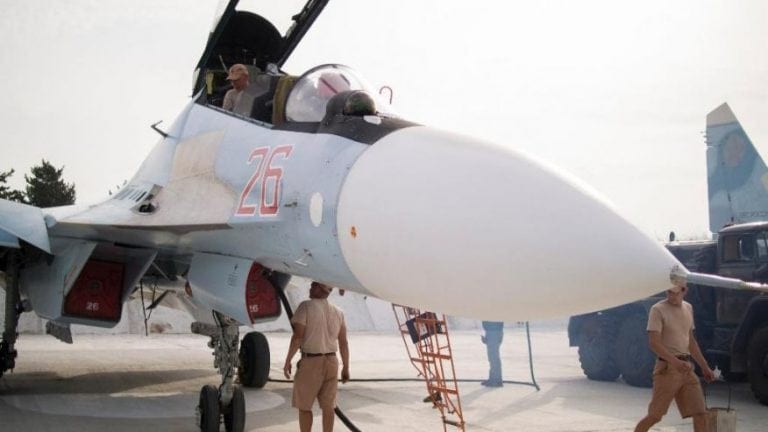
Maintenance by the Russian support crews and pilots at Hmeimim air force base, near Latakia, the main hub for all major air strikes in the region.
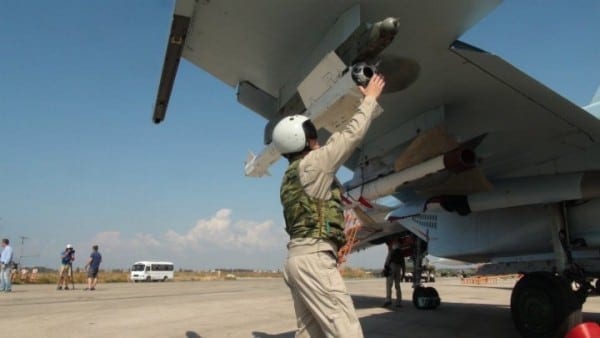
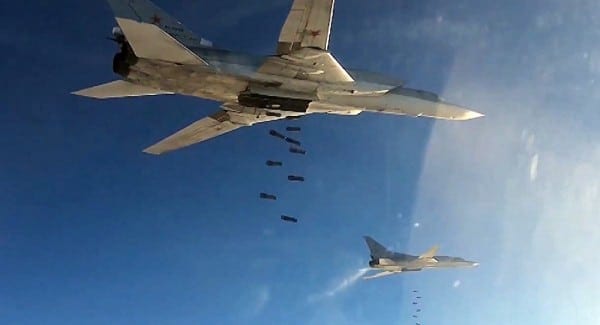
A bombing run by the air force group.
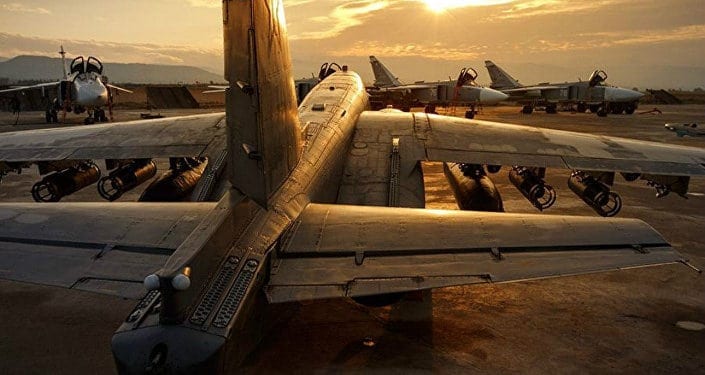
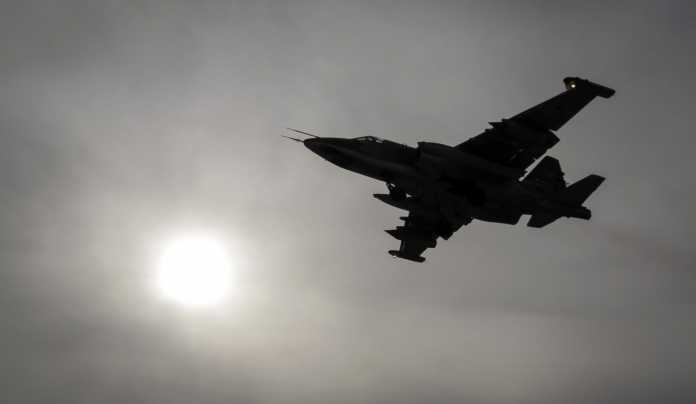
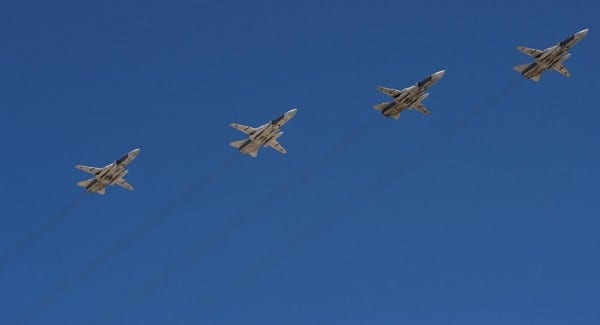
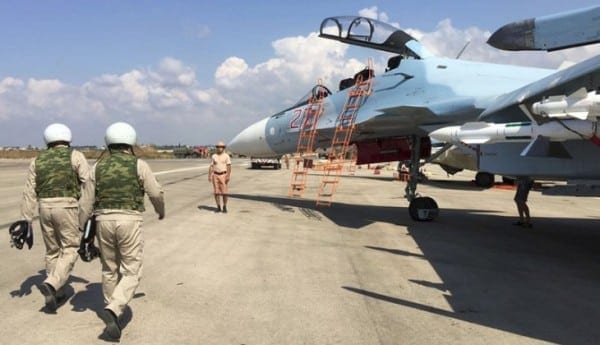

The Moskva, a missile cruiser, is patrolling the Mediterranean within striking distance of Syrian battlefields.
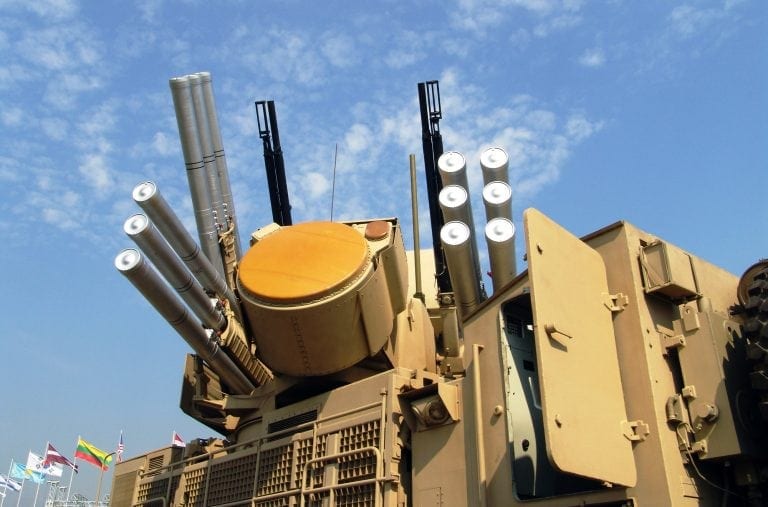
Russia is using advanced weapons like the Pantsir-S1, a combined short to medium range surface-to-air missile and anti-aircraft artillery weapon system which represents the latest air defence technology via phased array radars for both target acquisition and tracking.
[dropcap]S[/dropcap]till, what if the Americans are successful? After all, Daesh has taken a bad beating and maybe they can be at least pushed out of Raqqa? Maybe. But if that happens then the question will become whether the Americans will try to achieve a de facto partition of Syria (de jure they cannot, since a UNSC Resolution specifically called for a unitary state).
Partitioning Syria has been, and still is, the longterm Israeli goal. Considering the immense power of the Neocons today (nevermind a Hillary Presidency!) the chances that the US will be trying to partition Syria are immense.
And what if the Americans either fail or don’t even take the bait and stay out of Syria? Does the Russian withdrawal not risk leaving eastern Syria in Daesh hands? Would that not be just another de facto partition of the country? Maybe. Again, this is a real risk.
Finally, if the Turks and their Saudi allies do invade, that would almost certainly result in a partition of Syria as it is doubtful that the Syrian government could take on Daesh and Turkey and the Saudis at the same time. Iran, of course, might, but this would result in a major escalation threatening the entire region.
I think that the risk of a partition of Syria is, alas, very real. However, that being said, I would like to remind everybody that Russia does not have any moral or legal obligation to single-handedly preserve the territorial integrity of Syria. In purely legal terms, this is an obligation of every single country on earth (because of the UN Charter and the recent UNSC Resolution) and in moral terms, this is first and foremost the obligation of the Syrian people themselves. I think that it would be praiseworthy for Russia to do everything she can to prevent a partition of Syria,and I am confident that Russia will do her utmost, but that does not mean that this is a Russian obligation.
Future Russian options and operations?
[dropcap]I[/dropcap] want to draw your attention to the following words by Putin: “I consider the objectives that have been set for the Defense Ministry to be generally accomplished“. For those unfamiliar with the context (evaluation of a military operation) this might sound like a total approval. It is not. In Russian military terminology “generally accomplished” is better than “satisfactory” and roughly equivalent to “good” but not “excellent”. Putin is not saying that the performance of the Russian forces was less than perfect, but what he is saying is that the goals set out initially have not been fully/perfectly reached. In other words, this leaves the door open for a “objectives completion” operation.
The second interesting moment in today’s statement is that Putin added that “to control the observation of ceasefire agreements in the region, Moscow will keep its Khmeimim airbase in Latakia province and a base at the port of Tartus“.
To me the combination of these two statements points to the high probability that the Russians are keeping their options open. First, they will continue to supply the Syrians with hardware, training, intelligence and special operations and, second, they will retain the option of using military power if/when needed. Not only will Russia retain the capability to strike from the Caspian, the Mediterranean or with her long-range bombers, but she is likely to leave enough pre-positioned supplies and personnel in Tartus, Khmeimim and elsewhere in Syria to be ready to intervene at very short notice (say in case of a Turkish attack towards Latakia, for example).
Finally, I am confident that when speaking to the (newly created) “moderate opposition” the Russians will carefully but regularly drop hints about the need to achieve a negotiated agreement with the Syrian government “lest the war resume again with a new intensity” (or something along these lines). Keep in mind that, unlike their US counterparts, the Russian diplomats and intelligence officers truly understand their counterparts, not only because they are fluent in the local languages and understand the culture, but because the single important quality expected from a Russian diplomat or intelligence officer is the ability to understand the real, profound, motives of the person you are speaking to, to put yourself into his/her shoes. I have had enough personal experience with Russian diplomats and intelligence officers to be sure that they are already patiently talking to all the key figures in positions of power inside the so-called “moderate resistance” to maximize the stake each one of them might have in a negotiated solution. Oh sure, there will be beautiful speeches in the plenary meetings and conferences, but they key effort will be made in informal conversations happening in restaurants, back-rooms and various hotels where the Russians will make darn sure they convey to their interlocutors that he/she have a very personal interest in a successful negotiation. There will be a lot of bargaining involving promises and hinted threats and while some will, of course, resist such “gentle pressures”, the cumulative effect of such informal meetings will be crucial. And if that means preparing 500 different approaches and negotiation techniques for 500 different contacts, the Russians will put the manpower, time and effort to make it happen.
SIDEBAR 2
Washington has gone all out to slander Russia’s air campaign in Syria, but this time the Big Lie may backfire
EDITOR'S COMMENT ON WASHINGTON'S DISINFORMATION AGAINST RUSSIA—CLICK HERE
The campaign to defame the Russian intervention—painting it as a ruthless and criminal attack not just on ISIS, but on the non-existent "moderate Jihadis", and naturally the usual innocent civilians caught in the crossfire (not forgetting the demolition of priceless archaeological treasures that dot the Middle East), has reached new heights of hypocrisy, even by Washington's sociopathic standards.
All the photographs included in this section have one thing in common: they come from suspect sources (at best, i.e., the "White Hats") and are all intended to besmirch the name of Russia and her allies.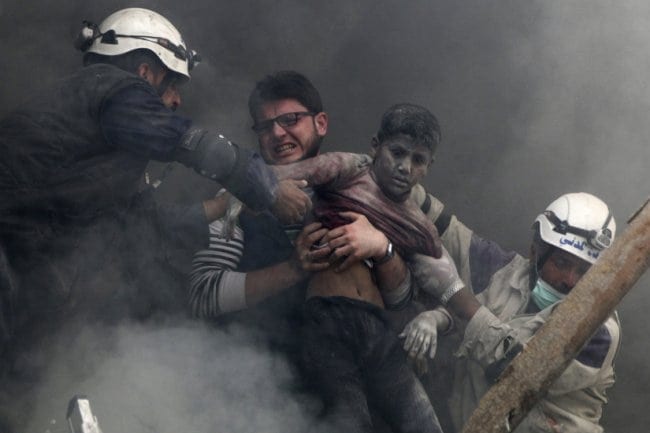
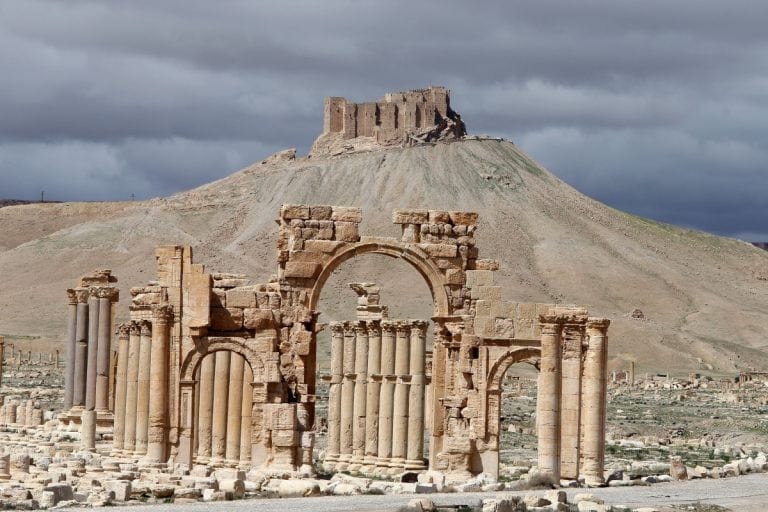
Although Palmyra has been in ISIS hands for almost two years, and these lunatics have systematically destroyed much of the treasures in the city, the photo below (without direct attribution) is being circulated to insinuate it was the Russians who did most of the damage.
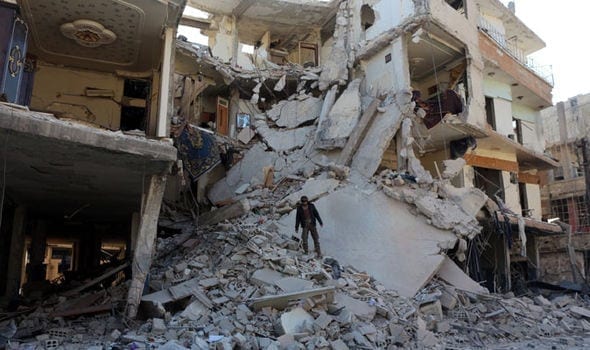

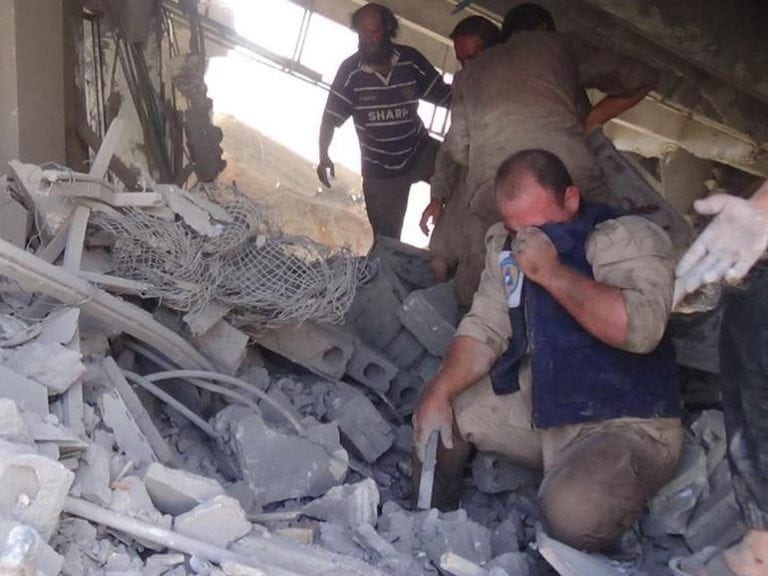
The propaganda is professional grade. The pictures always assume an air of impartial authoritativeness. The official caption for this one is typical: "This image taken on Wednesday, Sept. 30, 2015 posted on the Twitter account of the Syria Civil Defence, also known as the White Helmets, a volunteer search and rescue group, shows the aftermath of an airstrike in Talbiseh, Syria. Russia on Wednesday carried out its first airstrikes in Syria in what President Vladimir Putin called a pre-emptive strike against the militants. Khaled Khoja, head of the Syrian National Council opposition group, said at the U.N. that Russian airstrikes in four areas, including Talbiseh, killed dozens of civilians, with children among the dead. (Syria Civil Defence via AP)." The caption does not warn the readers that the White Helmets is a propaganda shill created with funding from George Soros and the usual hidden sources. Plus the organization's name, the Syrian Civil Defence, makes it sound as something like the Red Cross or a respectable state or international agency. It is neither.
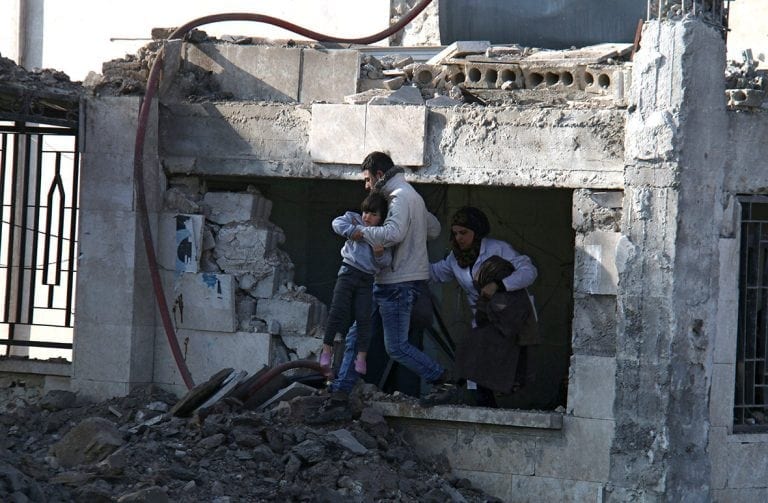
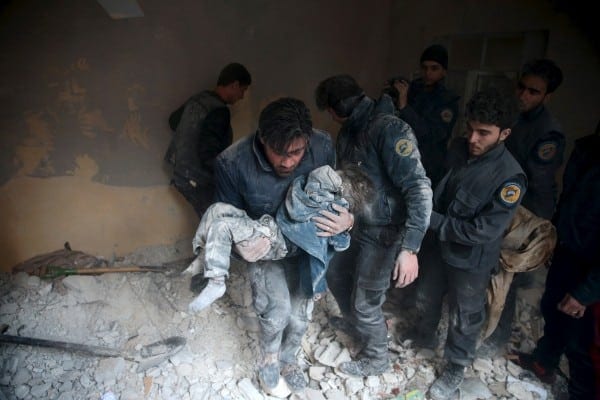
The classical heart-tugger: the children victims. They certainly exist, by the tens of thousands, and the pictures are eloquent, but the fate of these children was sealed by Washington's pathological criminality and not the Russian intervention to stop the insanity.
BELOW: Pieces of anti-Russian/pro-West cartoons and "activist art" like this abound in the Western mainstream and social media. Their origin is murky. This poster directly supports the US State Department's line —parroted by the media—that the Russians, for unfathomable and perverse reasons, are bent NOT on bombing ISIS, but supposedly "moderate" fighters and the usual gaggle of clueless innocents.
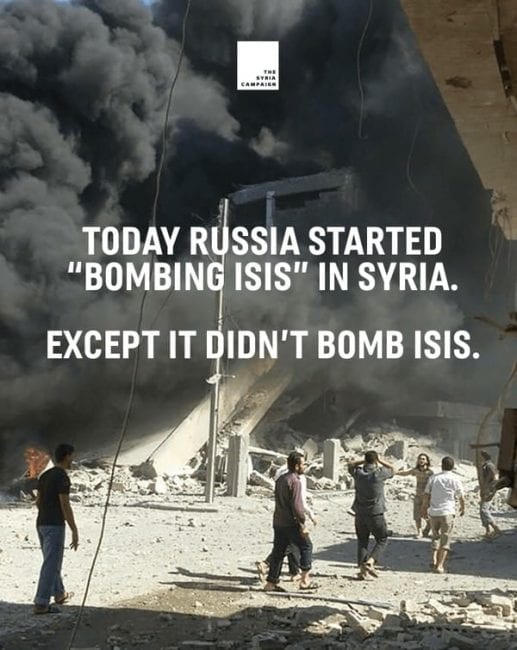 Q.E.D.
Q.E.D.
[dropcap]C[/dropcap]onnoisseurs of US-style propaganda will easily recognize the trademark memes by which Washington casts its nefarious spell on unsuspecting minds: the chorus of many voices giving credibility by sheer weight of numbers and repetition to outrageous accusations; the shots of demolished buildings, streets and entire towns making the region look like a pile of bloodstained rubble (which it has become in far too many places); and, the piece de resistance in any effort of this kind—the heart-tugging, inevitable pictures of children and women killed by the cruel bombs.
These are real tragedies (regardless of where the images were photographed or staged), and decent people are correct in being moved. Yet they are being manipulated, victims of a colossal imposture, a normative imposture without which the American plutocratic order would quickly begin to unravel. That's why in this and many other cases, the gross indecency rests with Washington's disinformers and presstitutes and their squalid puppet masters, the folks who make the wounds, the puny minority, the trillionaires—what is it really, 0.00001%?—who have no qualms using the suffering so wantonly created to advance their own insatiable self-serving agenda. Out of this pathetic spectacle, one thing emerges with blinding clarity: that never is the Big Lie more nauseating than when it wraps itself in the mantle of sanctimonious hypocrisy, and that is indeed the signature of US propaganda.
When the American disinformation machine is in high gear, working hard to deploy its enormous "soft power" across the globe, the hypocrisy drenches the consumer from every angle, and yet even a minimum of focused attention can rip it apart, revealing the truth. The key is always to look for the missing context.
In Syria, as is the case with all international war crimes, the most serious offense is what the Nuremberg tribunal found to merit the death penalty: the cold-blooded plotting and prosecution of manufactured wars, the so-called "wars of choice" concocted by America's leaders, of which the most disgusting example in recent memory is the assault on Iraq, waged by the Bush-Cheney regime, and since continued and expanded by the Obama team, as infected by the neocon imperialist vermin as the previous administrations. So the critical, contextual question passed over or muddled up by all these putative journalists is this: Who, what forces started the Syrian civil war and why? Who benefits? Who sowed the wind for years until a fierce whirlwind broke out that now threatens to engulf much of humanity? The answer is as clear as it is irrefutable: The US plutocracy and their accomplices in the Gulf, Turkey, and the EU. That's who. And although the truth and the supporting evidence is so thick as to constitute by now a glut, until the counter-propagnda narrative gets the attention of at least 20% of the American people, the lies will go on and so will the industrial-scale murder project that passes for foreign policy in our thoroughly benighted America.—P. Greanville

Evaluation
[dropcap]I[/dropcap]t is way too early right now to give a categorical evaluation of the timing and consequences of the Russian withdrawal from Syria. Let us also keep in mind that there is a lot we don’t know. What we do know is that Sergei Lavrov has had an absolutely crazy schedule over the past month or so and that Russian diplomats have been holding intense negotiations with all the regional powers. I am confident that the Russians planned their withdrawal at least as carefully as they planned their intervention and that they have left as many open options as possible. By the way, the big advantage of a unilateral decision is that, unlike one taken as part of an agreement with other parties, it can be unilaterally rescinded too. It took the Russians just days to launch their initial operation even though they had to execute it all in difficult conditions and under the cloak of secrecy. How long would it take them to move back into Syria if needed?
When all is said and done, I simply trust Vladimir Putin. No, no just because I am a Putin fanboy (which, of course, I am!), but because of his record of being right and taking difficult, even risky, decisions which eventually yielded Russia yet another unforeseen success.
Like any good chess player, Putin knows that one of the key factors in any war is timing and so far Putin has timed every move superbly. Yes, there were times in the past when I got really worried about what looked to me as either too much waiting or as dangerous risk-taking, but every single time my fears ended up being unfounded. And yes, I can easily muster up a long list of potentially catastrophic scenarios for Syria, but I think that this would only make sense if Putin had, like Obama, a long and impressive list of failures, disasters, miscalculations, [betrayals], and embarrassing defeats on his record. But he does not. In fact, what I see is an amazing list of successes achieved against very difficult odds. And they key to Putin’s success might well be that he is a hardcore realist.
Russia is still weak. Yes, she is stronger than in the past and she is rising up very fast, but she still is weak, especially in comparison to the still immense AngloZionist Empire whose resources simply dwarf Russia’s in most categories. However, this comparative weakness also forces the Kremlin to be very careful. When an empire is rich and powerful being arrogant and over-estimating your own capabilities is not nearly as bad as when a much weaker country does it. Just look at the USA under Obama: they went from one humiliating and costly defeat to another – yet they are still here and still powerful, almost as powerful as they used to be 10 years ago. While in the long run the kind of hubris and gross incompetence we nowadays observe in US decision-makers will result in the inevitable collapse of the Empire, in the medium to short term there is no truly painful price to pay for failure. Just one example: just think of the US military interventions in Afghanistan and Iraq. They are absolute and total failures, abject disasters of incalculable magnitude. They will go down in history as amongst the worst foreign policy failures ever. And yet, walking around in downtown New York or San Fransisco you would never think that you are visiting a country which just lost two major and long wars.
Russia does not have such a “luxury of power”, she has to make every bit count and she has to plan each move with utmost precision. Just like a tightrope walker with no safety harness, Putin knows that a single misstep can have catastrophic consequences.
To withdraw the bulk of the Russian military task force in Syria right now is a gutsy and potentially risky move for sure, but I am confident that it is also the right one. But only time will tell if my confidence is warranted or not.
APPENDIX
WITHDRAWAL OF RUSSIAN MILITARY: SOUTHFRONT REPORT
RECOMMENDED
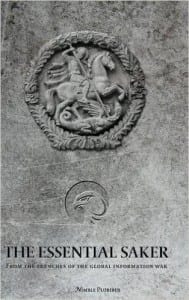 The Saker (2015-11-17). THE ESSENTIAL SAKER: from the trenches of the emerging multipolar world (Kindle Locations 11542-11557). Nimble Books LLC. Kindle Edition.
The Saker (2015-11-17). THE ESSENTIAL SAKER: from the trenches of the emerging multipolar world (Kindle Locations 11542-11557). Nimble Books LLC. Kindle Edition.


ABOUT THE SAKER
THE SAKER is the nom de guerre of a former Russian-born military and geopolitical analyst. He has described his former career as that of "the proverbial 'armchair strategist', with all the flaws which derive from that situation. This weakness is partially mitigated by the fact that I used to be a *professionally trained* armchair strategist: this is the guy who in peace time sits at the top floor of a sombre looking building and who in war time sits very deep inside a bunker." At one point he was a military analyst during the Kosovo war, and very pro-war, pro-West until some of his experiences during that war changed him and he left that profession in disgust. He was anti-Soviet but has gradually become pro-Putin. He explains, “And while during the Bosnian war I could get UNPROFOR intelligence delivered to me every morning, now I only have access to public, and mostly unreliable and uninteresting, sources.” “Before the war in Bosnia I had heard the phrase "truth is the first casualty of war" but I had never imagined that this could be quite so literally true. Frankly, this war changed my entire life and resulted in a process of soul-searching which ended up pretty much changing my politics 180 degrees. This is a long and very painful story which I do not want to discuss here, but I just want to say that this difference between what I was reading in the press and in the UNPROFOR reports ended up making a huge difference in my entire life. Again, NOT A SINGLE ASPECT OF THE OFFICIAL NARRATIVE WAS TRUE, not one. You would get much closer to the truth if you basically did a "negative" of the official narrative.”
Like The Greanville Post, with which it is now allied in his war against official disinformation, the Saker's site, VINEYARD OF THE SAKER, is the hub of an international network of sites devoted to fighting the "billion-dollar deception machinery" supporting the empire's wars against Russia, China, Iran, Syria, Venezuela and any other independent nation opposing or standing in the way of Washington's drive for global hegemony. The Saker is published in more than half a dozen languages. A Saker is a very large falcon, native to Europe and Asia.
Theme photo: After a battle, Soviet soldiers inspect Nazi weapons and artifacts in 1941.

=SUBSCRIBE TODAY! NOTHING TO LOSE, EVERYTHING TO GAIN.=
free • safe • invaluable
If you appreciate our articles, do the right thing and let us know by subscribing. It’s free and it implies no obligation to you—ever. We just want to have a way to reach our most loyal readers on important occasions when their input is necessary. In return you get our email newsletter compiling the best of The Greanville Post several times a week.
[email-subscribers namefield=”YES” desc=”” group=”Public”]
![]() THE WEST’S GREAT WAR AGAINST RUSSIA
THE WEST’S GREAT WAR AGAINST RUSSIA![]()
 Nauseated by the
Nauseated by the